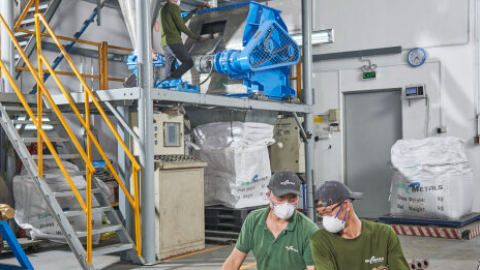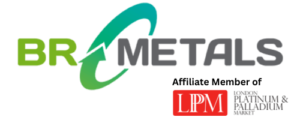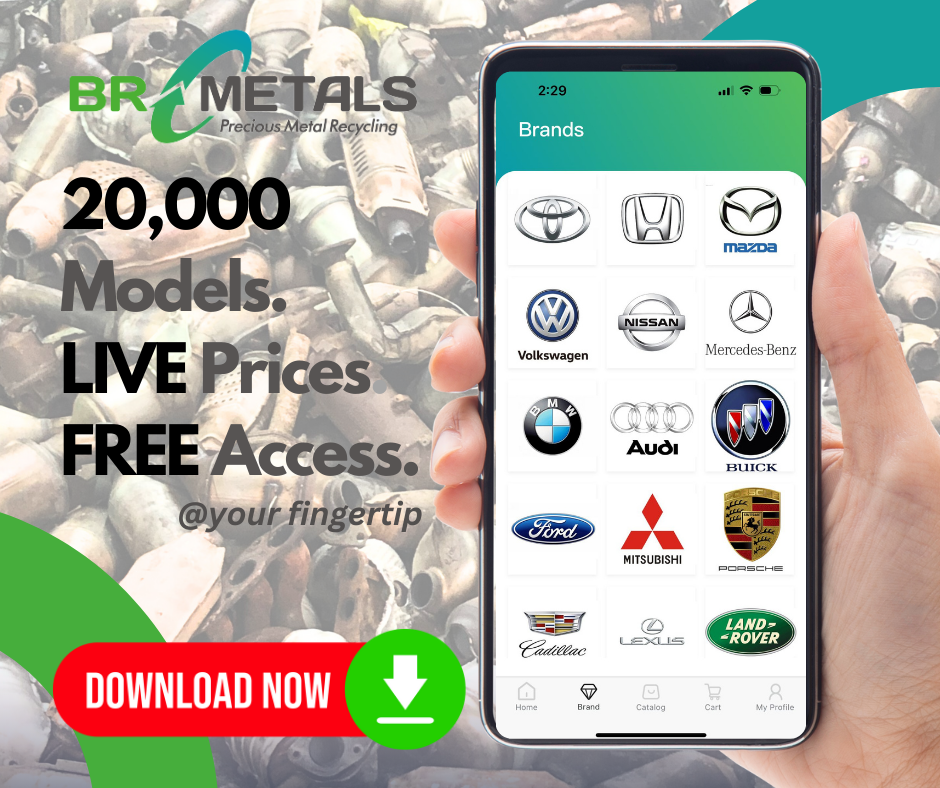Recycling catalytic converters is an important part of reducing environmental impact and recovering valuable metals. It has also been very profitable for most over the past few years. However, as prices of precious metals like platinum, palladium, and rhodium – key components of catalytic converters – become increasingly volatile, choosing the right recycling model will not only minimise market risks, but also maximise recycling profits. The tried and tested method is to sell catalytic converters piece by piece based on online catalogue/ mobile APP prices while bulk recycling with settlement by assay (commonly known as toll refining) is steadily gaining traction for those with bigger recycling volume. Each method has its pros and cons, and understanding these can help you make an informed decision.
Bulk Recycling with Settlement by Assay: A Comprehensive Approach
This recycling method involves sending catalytic converters to a specialized company that extracts the precious metals they contain.
Pros:
- Maximised Recovery of Platinum Group Metals (PGM): Companies that specialise in bulk recycling/ toll refining use proven and reliable processes to extract a higher quantity of precious metals.
- Accurate and Fair Assessment: Professional assaying ensures you get a fair price based on the actual metal content.
- Convenience: The entire process, from collection to payment, is handled by the recycling company.
- Market-Reflective Pricing: Payments are based on the current market value of the metals extracted.
- Environmentally Responsible: These companies typically follow strict environmental guidelines.
Cons:
- Reliance on the Refiner: You depend on the company’s integrity and skill for valuation. It’s crucial to work with a reputable company that has a strong record for its sampling and assay capabilities as well as integrity.
- Longer Process: It might take more time from collection to payment. This is because sampling and analysis take time.
- Market Dependence: Prices are based on fluctuating metal market value
BR Metals is always ready to help our long-term customers overcome these shortcomings. Find out more about our bulk recycling service and how we can help to overcome the cons here: https://www.brmetalsltd.com/recycling-models/
Selling by Piece: Direct and Immediate
Selling catalytic converters piece by piece involves setting a price based on an online catalogue/ APP and selling directly to buyers.
Pros:
- Direct Control Over the Sale: You have the freedom to negotiate and choose your buyer.
- Immediate Payment: This method often results in quicker payment.
- Flexibility: Sell anytime without long-term commitments.
Cons:
- Risk of Lower Returns: Without professional assaying, you might sell below the market value.
- Variable Catalogue Prices: Prices can change, affecting potential earnings.
- Buyer’s Market: Dependent on finding buyers who adhere to listed prices, especially in a prolonged bear market
- Environmental Concerns: Not all individual buyers follow environmentally friendly recycling practices
Final Say…
The choice between bulk recycling with settlement by assay and selling catalytic converters by piece hinges on several factors, including the desire for convenience, control over the selling process, and the importance of environmental considerations. While toll refining offers a hassle-free and environmentally friendly option, it does require trust in the refiner. Selling by piece provides more control and immediate payment but could result in lower returns and requires more effort.
Ultimately, the decision should align with your personal preferences, resources, and values. Whichever path you choose, responsible recycling of catalytic converters contributes positively to both the environment and the economy.






